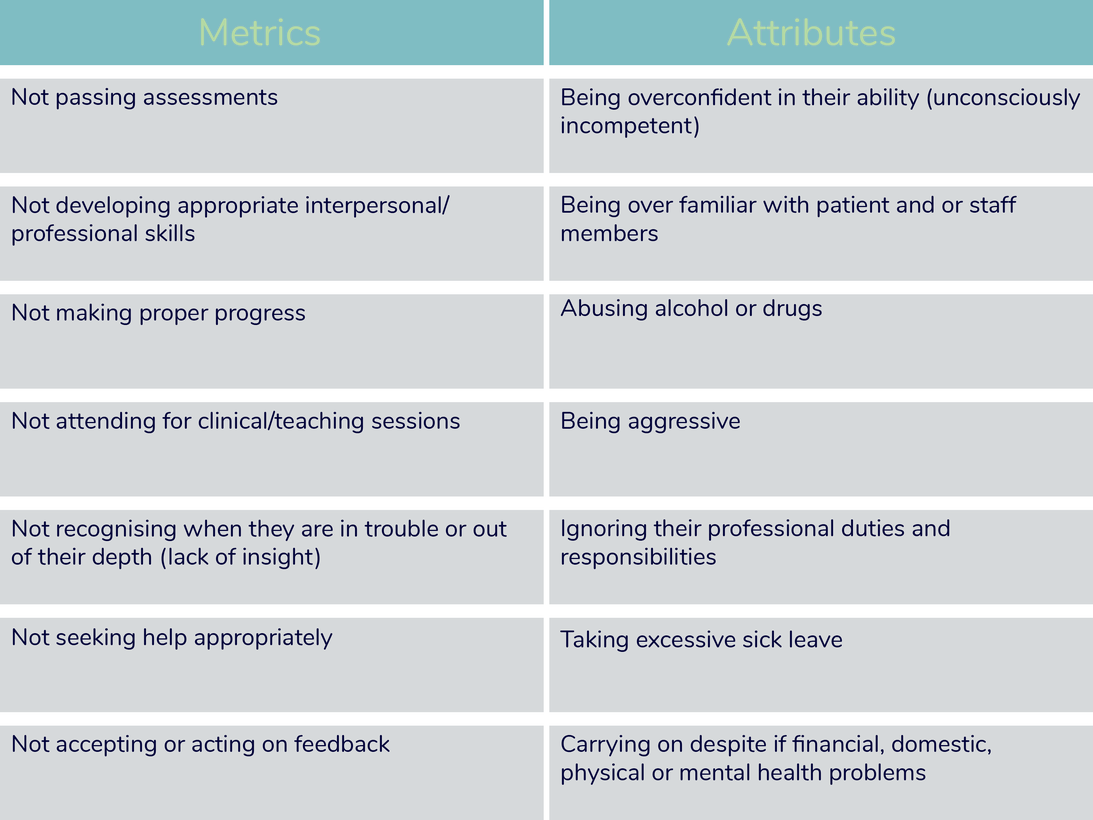Section 1 - Mentorship Programme / 1.7 Managing the Failing Student
This section is about how the supervising registrant should act when faced with a failing student.

Podcast
Understanding the Failing Student
There are many ways that a student my not be achieving what is required of them by the programme. It is important to identify any attributes that may lead to a student failing as soon as possible. Below are some examples of what metrics and attributes may define a failing student:

Intervention
It is important to intervene as early as possible when a failing, or potentially failing, student has been identified. The student needs to be made aware of their position in a clear professional manner. Below are some points to consider when giving feedback to the failing student:
- Avoid jokes - they can be misconstrued
- Try not to compare with other people’s performance
- Show interest and concern in developing the learner
- Ensure that you suggest solutions to problems
- Try to identify time so that feedback is not rushed
- Make sure that the feedback is given in a private space without interruption
Moving Forward
Following feedback, the student and the mentor need to develop an action plan to allow the student to move forward.

Figure 7: Assisting the failing student in moving forward
The action plan should be built around SMART goal setting (see previous article), and should pay particular attention to strengthening identified areas of weakness.
Link with Academic Provider
The academic partner will need to be informed when a failing student is identified. If the academic partner is informed at an early stage then they will be in a better position to offer support to the student and to the mentor. It is likely that the academic partner will have pathways and recourses for supporting students in a range of scenarios. If in any doubt, contact the academic partner for an informal discussion to discuss an appropriate course of action.